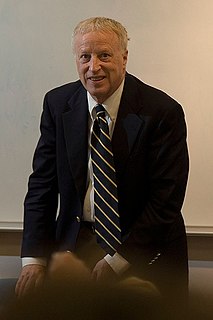A Quote by Willa Cather
Writing ought either to be the manufacture of stories for which there is a market demand - a business as safe and commendable as making soap or breakfast foods - or it should be an art, which is always a search for something for which there is no market demand, something new and untried, where the values are intrinsic and have nothing to do with standardized values.
Related Quotes
If we are to have a stabilized market demand, selling pressure should be maintained . . . perhaps increased . . .at the first sign of a decline in business. I know of no single way business managers can do more to stabilize market demand than through greater stabilization of sales and advertising expenditures.
There is a contradiction between market liberalism and political liberalism. The market liberals (e.g., social conservatives) of today want family values, less government, and maintain the traditions of society (at least in America's case). However, we must face the cultural contradiction of capitalism: the progress of capitalism, which necessitates a consumer culture, undermines the values which render capitalism possible
In short, what the living wage is really about is not living standards, or even economics, but morality. Its advocates are basically opposed to the idea that wages are a market price-determined by supply and demand, the same as the price of apples or coal. And it is for that reason, rather than the practical details, that the broader political movement of which the demand for a living wage is the leading edge is ultimately doomed to failure: For the amorality of the market economy is part of its essence, and cannot be legislated away.
For, the advantages which fashion values, are plants which thrive in very confined localities, in a few streets, namely. Out of this precinct, they go for nothing; are of no use in the farm, in the forest, in the market, in war, in the nuptial society, in the literary or scientific circle, at sea, in friendship, in the heaven of thought or virtue.
It is this language of values which I hope to bring to my books. . . . I want to bring values to those who have not been valued, and I want to etch those values in terms of the ideal. Young people need ideals which identify them, and their lives, as central . . . guideposts which tell them what they can be, should be, and indeed are.
The great multinationals are unwilling to face the moral and economic contradictions of their own behavior - producing in low-wage dictatorships and selling to high-wage democracies. Indeed, the striking quality about global enterprises is how easily free-market capitalism puts aside its supposed values in order to do business. The conditions of human freedom do not matter to them so long as the market demand is robust. The absence of freedom, if anything, lends order and efficiency to their operations.
We can work together for a better world with men and women of goodwill, those who radiate the intrinsic goodness of humankind. To do so effectively, the world needs a global ethic with values which give meaning to life experiences and, more than religious institutions and dogmas, sustain the non-material dimension of humanity. Mankind's universal values of love, compassion, solidarity, caring and tolerance should form the basis for this global ethic which should permeate culture, politics, trade, religion and philosophy. It should also permeate the extended family of the United Nations.
There are three important principles to Graham's approach. [The first is to look at stocks as fractional shares of a business, which] gives you an entirely different view than most people who are in the market. [The second principle is the margin-of-safety concept, which] gives you the competitive advantage. [The third is having a true investor's attitude toward the stock market, which] if you have that attitude, you start out ahead of 99 percent of all the people who are operating in the stock market - it's an enormous advantage.



































